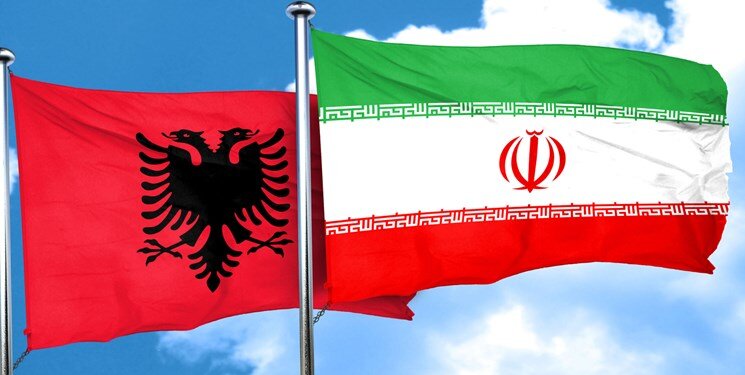Albania takes orders from America about Iran

TEHRAN – In a hasty and gratuitous move, Albania severed diplomatic relations with Iran on Wednesday and ordered all Iranian diplomats and embassy staff to leave the country in 24 hours.
The apparent reason for that is an alleged Iranian cyberattack against Albanian government institutions and agencies.
The move, announced by Albanian Prime Minister Edi Rama in a video statement, raised eyebrows in the world as Tehran has been on good terms with Tirana.
“The government has decided with immediate effect to end diplomatic relations with the Islamic Republic of Iran,” Rama said, adding, “This extreme response ... is fully proportionate to the gravity and risk of the cyberattack that threatened to paralyze public services, erase digital systems and hack into state records, steal government intranet electronic communication and stir chaos and insecurity in the country.”
The alleged cyberattack apparently took place in mid-July and is said to have disrupted government services and agencies.
The Albanian prime minister alleged that his government had what he called “indisputable evidence” of an Iranian role in the cyberattack.
“The in-depth investigation provided us with indisputable evidence that the cyberattack against our country was orchestrated and sponsored by the Islamic Republic of Iran through the engagement of four groups that enacted the aggression,” he claimed.
But the investigation has been done with help from the United States, which is now at loggerheads with Iran over protracted nuclear talks in Vienna over reviving the 2015 Iran nuclear deal, officially known as the Joint Comprehensive Plan of Action (JCPOA).
In what appeared a coordinated move with the Albanian government, the White House National Security Council issued a statement on the alleged cyberattack and expressed solidarity with Albania. “The United States strongly condemns Iran’s cyberattack against our NATO Ally, Albania. We join in Prime Minister Rama’s call for Iran to be held accountable for this unprecedented cyber incident. The United States will take further action to hold Iran accountable for actions that threaten the security of a U.S. ally and set a troubling precedent for cyberspace,” the U.S. statement said.
The White House added, “For weeks, the U.S. government has been on the ground working alongside private sector partners to support Albania’s efforts to mitigate, recover from, and investigate the July 15 cyberattack that destroyed government data and disrupted government services to the public. We have concluded that the Government of Iran conducted this reckless and irresponsible cyberattack and that it is responsible for subsequent hack and leak operations.”
The White House statement and its coordination with the Albanian government raise suspicions about an American-orchestrated effort to up the ante against Iran amid stalemated nuclear talks.
Over the past weeks, Iran has been involved in what can be called indirect letter negotiations with the Biden administration. That began when the European Union foreign policy chief, Josep Borrell, submitted a “final text” to Iran. So far, Iran has submitted two responses to that text, with the latest response expected to come from the White House. But the Biden administration has refused to give a response to Iran’s last response and instead chose to blame Iran for the White House's inability to make the necessary political decisions.
Aside from the current diplomatic tensions over the Vienna talks, Albania resorting to a media campaign and giving an “extreme response” seems to be gratuitous. Because Iran has sought to keep relations with Albania away from external factors that could overshadow the relations. Iran did so despite the fact that Albania, at American urging, played host to an Iranian group that has been on the European and American terror lists until recent years.
The group in question, Mujahideen-e-Khalq (MEK), is implicated in assassinating 12,000 Iranian citizens, according to Habilian Association, an Iranian Human Rights NGO conducting studies on terror victims in Iran.
A 39-page report by the Association said in 2020 that since the victory of the Islamic Revolution in 1979, more than 17,000 Iranian citizens were killed by terrorist groups, of which 12,000 were assassinated by the MEK.
Leave a Comment